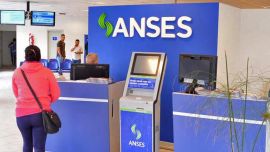The Health Ministry announced on Sunday the progressive distribution of over 57,000 tests to detect possible cases of Covid-19 to the different jurisdictions of the country so that they can assemble their own confirmation techniques.
“The phased distribution of reagents to decentralise testing has begun,” confirmed Health Access Secretary Carla Vizzotti at a press conference.
Health sources told Perfil that two of the laboratories ready to start testing as from Monday belong to Anlis-Malbrán – the Instituto Nacional de Epidemiología Juan H. Jara in Mar del Plata and the Instituto de Enfermedades Respiratorias Emilio Coni in Santa Fe. Laboratories in the City of Buenos Aires, Córdoba, Chaco and Tierra del Fuego will shortly be joining them and then the other jurisdictions.
Anlis-Malbrán together with the World Health Organisation (WHO) is giving virtual training to professionals in over 30 laboratories of the National Influenza Network and other respiratory virus. The training gives up-to-the-minute information on the current situation of Covid-19 at global, regional and national level; the techniques for diagnosis recommended by the WHO; the protocols for detecting SARS-CoV-2; the interpretation of results and exercises with clinical cases. The tests for detecting coronavirus were doubled within 24 hours.
For her part, the Respiratory Virus Service chief of National Institute for Infectious Diseases (Instituto Nacional de Enfermedades Infecciosas or INEI) of Anlis–Malbrán, Elsa Baumeister, explained that “the methodology which will be transferred is very similar to that already used by the laboratories of the National Influenza Network and other respiratory virus to diagnose influenza A and B via RT-PCR (the Spanish acronym for Reverse Transcript-Polymerase Chain Reaction) in real time.” She also informed that once the sample reaches the INEI-Anlis Respiratory Virus Service, the process of studying and downloading results into the SISA integrated health Information system takes between 24 and 48 hours if there is no inconvenience causing delays.
At present an average of 200 samples is analysed daily with 8-10 percent giving positive. The provinces had been critical of the delays in obtaining results. Health Minister Ginés González García recognised that the transfer of samples from the place of origin to the Malbrán was generally the most time-consuming, thus valuing the important work carried out by the Anlis–Malbrán team. This consists of 11 technicians working in two shifts seven days a week.
Until now all samples falling under the definition of suspicious cases (people with symptoms and antecedents of travelling to risk zones or who had been in contact with confirmed or suspect cases) are being analysed. Nevertheless, Vizzotti confirmed that a strategy of detecting the possible community transmission of the virus by testing people without these travel antecedents is being implemented at this stage.
These tests are being carried out in some jurisdictions such as Chaco, Córdoba and the City of Buenos Aires.



















Comments